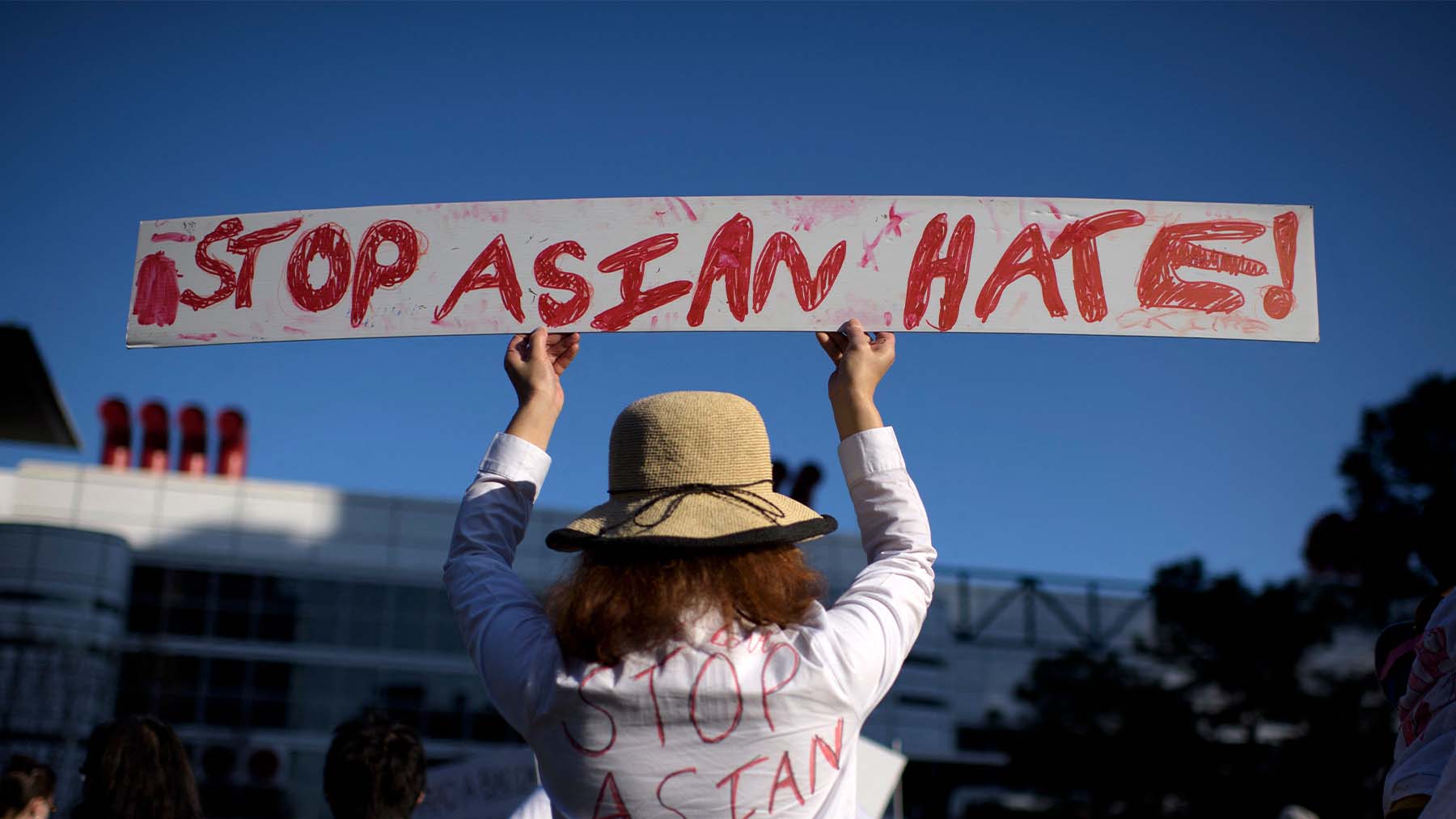Two years ago, I sat in the East Room of the White House and watched as President Joe Biden signed the COVID-19 Hate Crimes Act into law. Asian American legislators from both chambers stood beside him for the occasion — one that was both historic and strikingly unusual. Looking around, I realized how rare it was to be among so many Asian American legislators, especially women, and celebrate their leadership. I was deeply honored to be part of that moment.
At the time, tensions and uncertainty across the nation were high. Far-right extremists had violently attacked the U.S. Capitol just months prior. COVID-19 vaccines were newly available. And our nation was witnessing a horrifying rise in incidents of violence, harassment and intimidation against Asian American, Native Hawaiian and Pacific Islander people after some in positions of authority — including former President Donald Trump — weaponized the pandemic to escalate anti-Asian rhetoric and inflame racial divides. According to the FBI, from 2020 to 2021, hate crimes against the Asian American and Pacific Islander (AAPI) population increased to the highest level ever recorded.
In that climate, the law’s passage, with an overwhelmingly bipartisan vote, felt monumental. It was the most important hate crimes legislation signed into law in more than a decade, and it sparked more robust data collection as well as funding for state-based hotlines to connect victims with local support services.
While the law itself was an achievement, so too was the collective organizing that led to its success. Asian American leaders had linked arms with other movement leaders to include provisions of the Jabara-Heyer NO HATE Act, centering impacted communities and ensuring the measure would be as inclusive and impactful as possible for all communities targeted by hate. The bill also would not have passed without the courage and strength of the families of hate crime victims Khalid Jabara and Heather Heyer, who were willing to tell the stories of their loved ones.
This shared victory was a stirring reminder of what we can accomplish when we acknowledge and honor the experiences of others and follow the leadership of those historically pushed to the margins. This Asian American and Pacific Islander Heritage Month, I’ve been thinking of these lessons as it becomes ever clearer that we cannot legislate, regulate or prosecute hate out of existence.
To be sure, hate crime laws are absolutely critical to confronting hate and extremism. But prevention is also key. That must include education and teaching our students the unvarnished and full truth about American history and the many communities that have developed and enriched our nation.
Growing up in East Tennessee, I never saw my Chinese heritage reflected in textbooks or classroom lessons in the small public school I attended. In fact, I never learned anything about Asian American history at all. When I moved to Washington, D.C., for college, I went to the National Museum of American History for the first time and saw an exhibit on the Japanese American internment during World War II. It devastated me. How could nobody have taught me about this history?
Most of my learning of AAPI history after that I did of my own curiosity and initiative. I talked to elders, read books, listened to experts and got involved in civil and human rights work. I’m still learning to this day. Students should not have to go through what I did. They should see themselves reflected in the American story from their earliest years — and they should learn the stains of our history and the scars of our nation’s prejudice as well as the moments of triumph and progress.
History matters, especially those stories that profoundly shaped our country but so often go unacknowledged and untold. And yet, in the last two years alone, Republican state legislators have introduced or passed hundreds of bills to impose ignorance in our schools. They’re trying to deny students of all backgrounds the opportunity to access a whole and truthful telling of our history. We can’t let them win.
That’s why the Southern Poverty Law Center is thrilled to support Rep. Grace Meng of New York and Sen. Mazie Hirono of Hawaii and their leadership in introducing the Teaching Asian Pacific American History Act, which would increase awareness of the experiences, history and contributions of AAPI communities in our K-12 schools.
More than ever, today’s mainstreaming of white supremacy and hate violence underscores the need for parents, educators and communities to be attuned to signs of radicalization. The federal government can do more to ensure that our classrooms have the resources they need to promote justice, help students acquire critical thinking skills and equip educators with the best tools to guide them. To access free resources or learn more about our work alongside educators and students fighting for equity in their schools, visit our Learning for Justice program here.
Together, we must continue to link arms across communities and reject hate violence wherever and whenever it occurs. And we must push back against efforts to whitewash our curricula and prevent some of our history from being taught in the classroom. Moving toward a multiracial, inclusive democracy requires that we learn, reckon with and honor our shared history — and celebrate the contributions of AAPI communities alongside all others in our nation.
Photo at top: Sally Sha holds up a sign during a rally in Houston, Texas, on March 20, 2021. The rally was held to honor the victims of the Atlanta spa shootings, where six of the eight victims were of Asian descent. From 2020 to 2021, hate crimes against the AAPI population increased to the highest level ever recorded. (Credit: Mark Felix/AFP via Getty Images)



